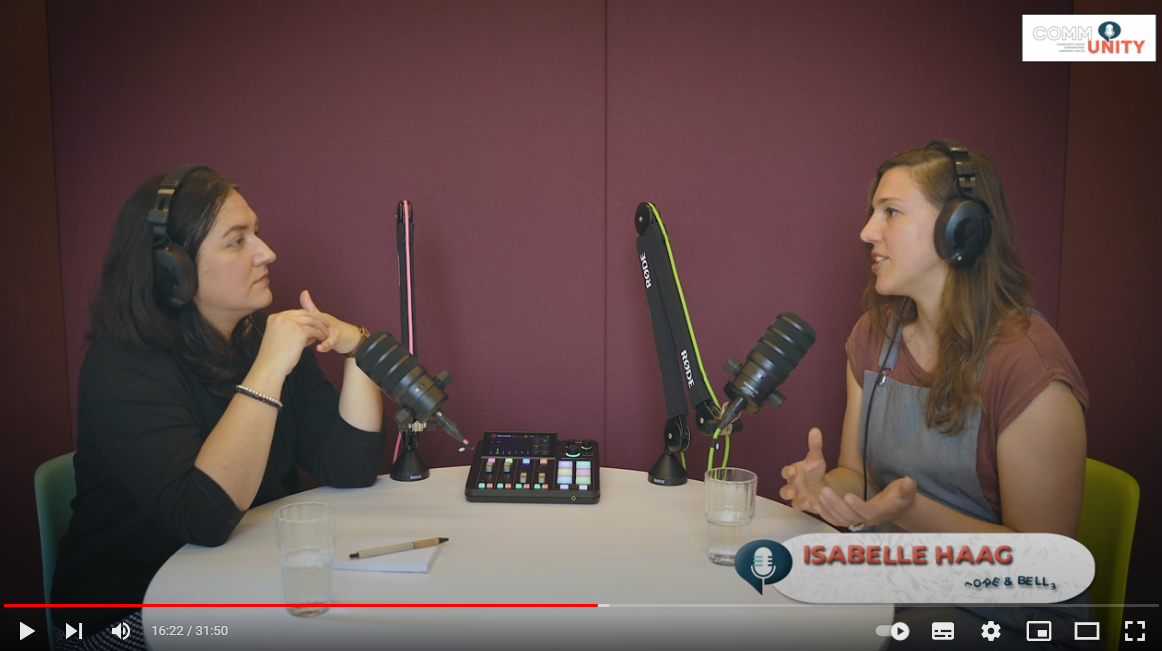
Isabelle Haag discusses her company, Lore & Belle, which empowers children through storytelling and custom clothing, fostering self-confidence and individuality.
🎨 Isabelle Haag founded Lore & Belle to boost children’s self-confidence.
👗 The brand creates clothes inspired by strong female role models.
📖 Each garment comes with a story to inspire children.
🧵 Patterns allow parents to sew personalized outfits for their kids.
🌍 The company promotes slow fashion and sustainability.
👩👧👦 Empowering children also involves family engagement.
🌈 The mission aims to instill the idea of writing and owning one’s narrative.
🌟 Clothing can significantly impact a child’s self-esteem, with Lore & Belle providing unique garments that inspire confidence and creativity. This connects the child’s identity to the story behind the clothing.
📚 The integration of narratives with clothing helps children relate to strong figures, fostering aspirations and self-discovery. It emphasizes the importance of storytelling in childhood development.
♻️ By promoting slow fashion, the brand encourages children and parents to value quality and sustainability over fast fashion, contributing positively to environmental concerns.
🤝 The initiative thrives on community support, emphasizing the importance of collaboration and shared experiences in shaping children’s futures.
👩🏫 Engaging parents in the process allows for deeper connections and discussions around values, history, and personal aspirations, enhancing the overall impact on children.
🧒 The brand challenges the notion of conformity in children’s clothing, advocating for individuality and personal expression through custom designs.
🎯 Haag’s vision includes expanding her mission to other communities, demonstrating the potential for broader societal impact through creative empowerment initiatives.
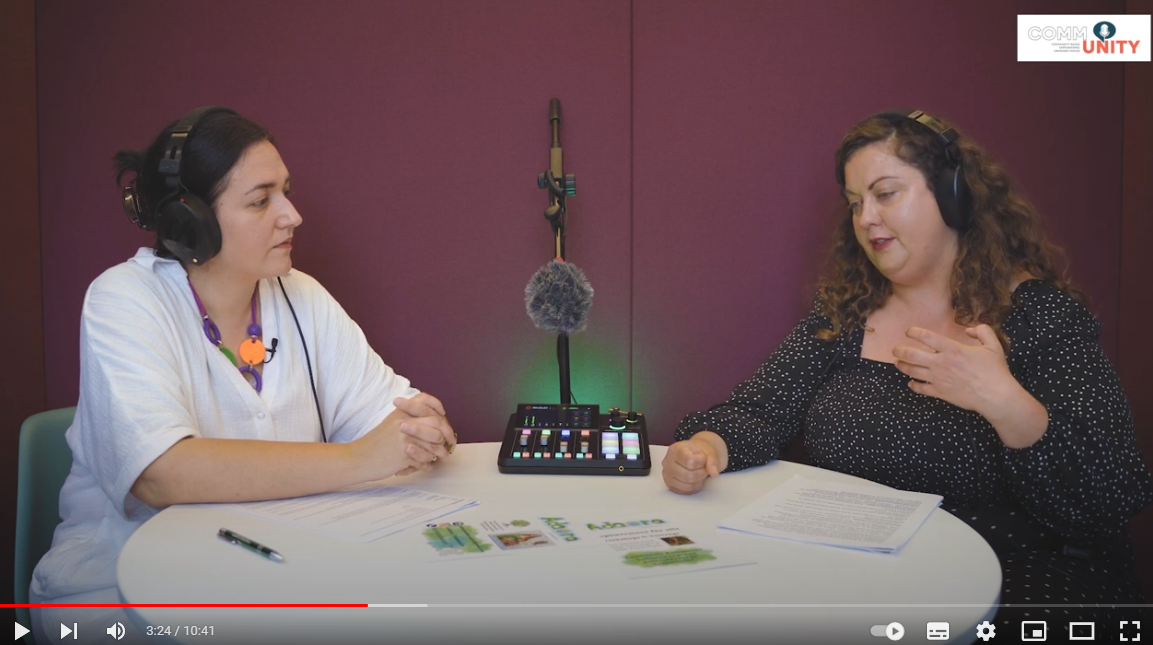
Daniela Eneh discusses her journey from Romania to Germany and her initiative, Adora Community, which empowers migrants through cultural and emotional support.
🌍 Daniela Eneh moved to Freiburg, Germany, 13 years ago from Romania.
💼 She works in marketing and sales for an American company.
🤝 Adora Community focuses on emotional and cultural empowerment for migrants.
🎤 The initiative hosts activities like talent shows to celebrate diverse cultures.
📚 Regular meetings help children learn their mother languages in a supportive environment.
💖 Adora operates on a voluntary basis, emphasizing community involvement in children’s education.
🌟 Daniela aims to foster acceptance and self-identity among migrant families.
🌱 Daniela’s experience highlights the challenges migrants face in adapting to new cultures, emphasizing the need for supportive communities.
🌈 By encouraging children to express themselves in their mother languages, Adora Community fosters pride in cultural heritage, crucial for identity formation.
🏘️ The initiative showcases how collective efforts can create a nurturing environment essential for children’s development and social acceptance.
💪 Adora’s volunteer-driven model illustrates the power of grassroots movements in enacting social change without relying on formal structures.
💡 The focus on emotional empowerment underscores the importance of mental health in migrant communities, which can often feel isolated.
🤗 Daniela’s work addresses the critical need for a sense of belonging among children of mixed heritage, helping them navigate their identities.
📈 The success of Adora Community suggests that similar initiatives could benefit from more institutional support to amplify their impact and outreach.
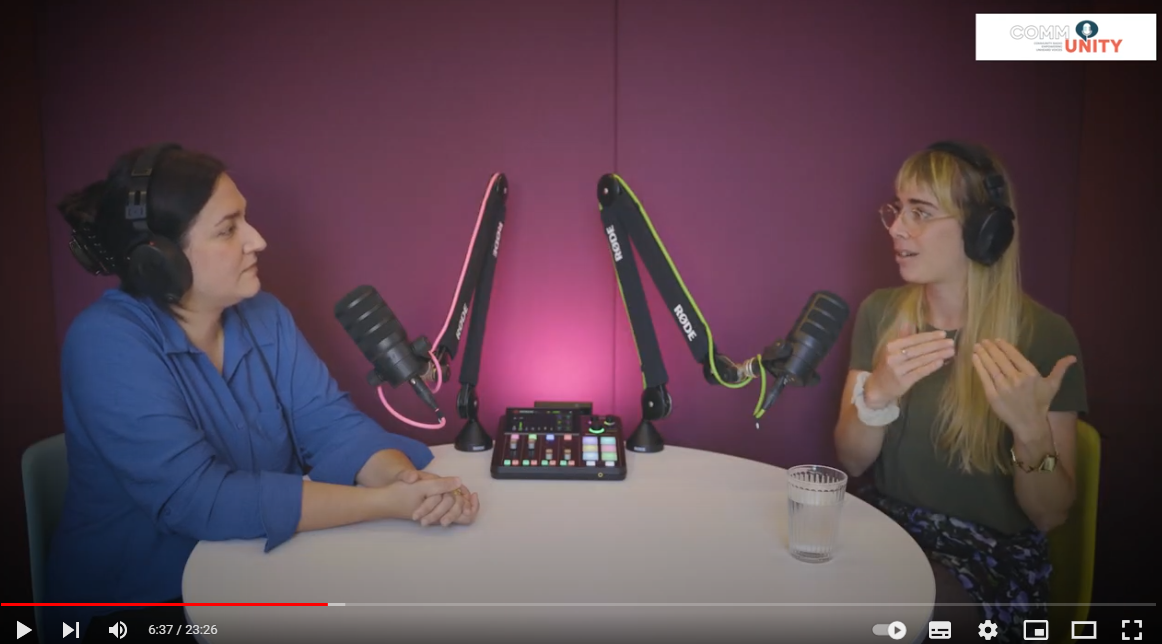
Corinna Kämpfe discusses the Social Innovation Lab in Freiburg, Germany, highlighting its role in supporting social startups and fostering community engagement.
🌳 Freiburg is known for its friendly, Mediterranean vibe and green initiatives.
💡 The Social Innovation Lab supports social startups by providing resources and a collaborative environment.
🤝 Connection is key; like-minded individuals can help validate and refine ideas.
📈 Incremental social innovation can lead to significant changes in communities.
🎤 Annual events showcase social startups to increase visibility and public awareness.
🌐 Networking is essential; the Lab connects members with relevant resources and contacts.
📨 Interested individuals are encouraged to reach out via email for support.
🌱 Freiburg’s vibrant community culture fosters social innovation, making it an ideal environment for collaboration. This sense of belonging encourages entrepreneurship and creativity.
🤓 Social change often stems from small, consistent efforts rather than drastic disruptions, emphasizing the value of patience and persistence in social entrepreneurship.
👥 Building relationships with like-minded individuals is crucial for validating ideas and gaining support, enhancing the chance of success in social initiatives.
🎉 Social innovations struggle for public attention compared to technological advancements, highlighting the need for dedicated platforms and events to elevate their profiles.
📊 Effective social startups track their impact, using metrics to ensure they meet the needs of their target groups and adapt as necessary.
💻 Combining in-person interactions with digital tools can create a robust support system for social innovators, balancing personal connections with technological efficiencies.
🔄 Being open to feedback and ready to pivot ideas based on community needs can significantly enhance the effectiveness of social innovations.
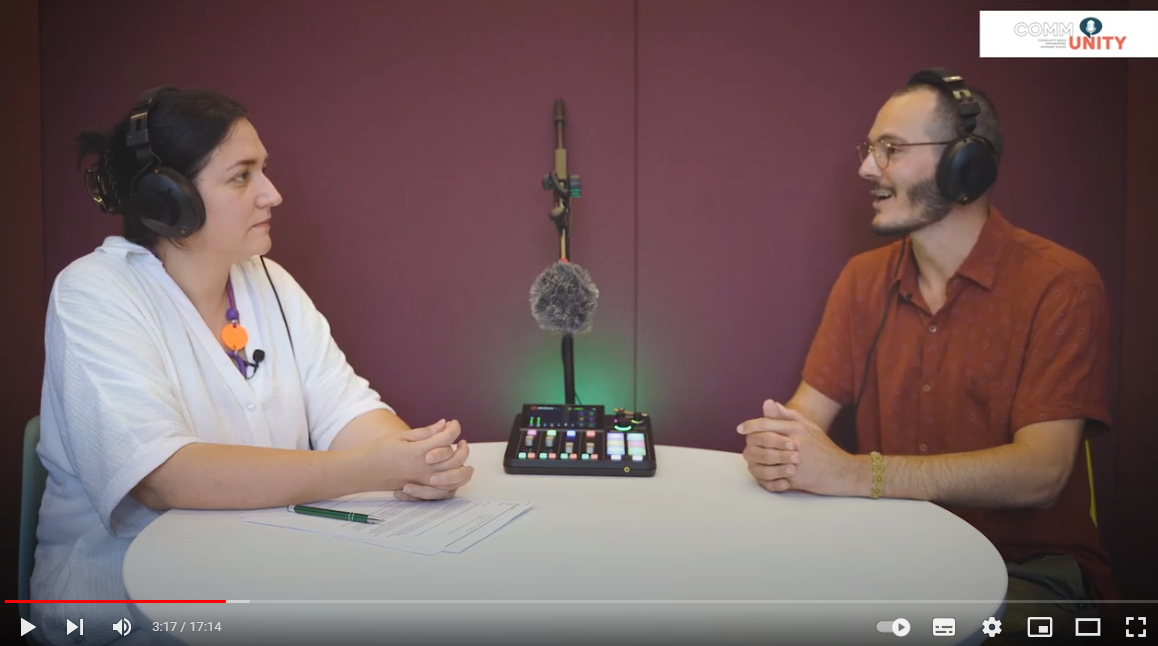
Johannes Carl discusses his project aimed at helping young adults cope with loneliness and find a sense of belonging through psychoeducational workshops.
🎶 First meeting: Johannes introduces himself and his project on loneliness.
💔 Loneliness: A common yet unspoken experience among young people.
🛡️ Prevention focus: Addressing loneliness before it becomes chronic.
🎓 Workshops: Offering psychoeducational sessions at universities.
🤝 Connection: Creating spaces for shared experiences to combat loneliness.
🌍 Collaboration: Encouraging outreach and partnership for broader impact.
📲 Online presence: Available on social media for support and connection.
💬 Johannes emphasizes that loneliness is a normal experience, especially during life transitions. Acknowledging this can reduce stigma and promote open conversations.
🧠 By integrating psychology into workshops, participants gain tools to understand their feelings of loneliness and develop coping strategies, enhancing emotional well-being.
🔄 Loneliness is framed as a societal issue rather than an individual failing, fostering a collective responsibility to address it.
🌱 Understanding personal values and needs is crucial for forming deeper connections with others, which is essential for combating loneliness.
💡 Engaging formats like “authentic friending” workshops encourage participants to connect on a meaningful level, making the learning process more enjoyable and impactful.
🌐 Johannes invites international collaboration, indicating that loneliness is a widespread concern that transcends geographical boundaries.
🤗 The initiative seeks to create supportive environments where young adults can share their experiences, thereby validating their feelings and promoting social cohesion.

The podcast explores the project of inclusion through video and written communication, involving different marginalized communities in Germany and Ireland.
🌍 Inclusion of marginalized communities.
🎤 Podcasts and videos as new communication formats.
🤝 Collaboration between different cultures.
📚 “Outside” magazine without prejudices about the authors.
🎉 Face difficulties as challenges.
💬 Natural and welcoming communication.
⏳ Mutual learning between organizations.
🌈 The project focuses on the inclusion of marginalized groups, promoting meaningful interactions between different cultures. This approach offers opportunities to those who usually have no voice in the media.
🎙️ Using podcasts and videos, the project creates spaces to tell personal stories, breaking down traditional barriers to communication. This fosters authentic and direct dialogue.
🤗 The informal and friendly approach to communication makes participants feel at ease, facilitating the sharing of their experiences without fear.
📖 The “Outside” magazine model, where authors remain anonymous, eliminates identity bias, allowing for a more genuine and open reading of stories.
⚡ Challenges encountered in the project are seen as opportunities for growth and learning, pushing teams to push their limits and innovate.
💡 Collaboration between organizations provides an opportunity for learning, where each party contributes and receives new ideas and practices.
🌍 The project embraces a global vision, integrating different experiences and points of view, which enriches the content and social impact of the initiatives.
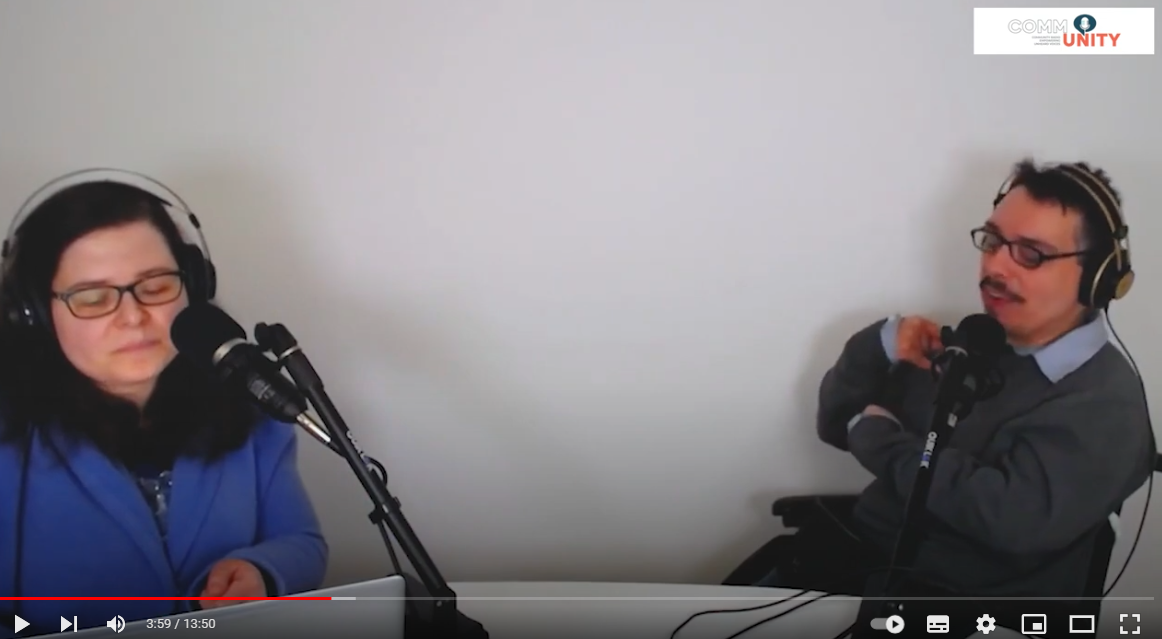
The podcast “Diversity Without Filters” tackles stereotypes about disability, with Vincenzo Dolce sharing his experience and challenging misperceptions.
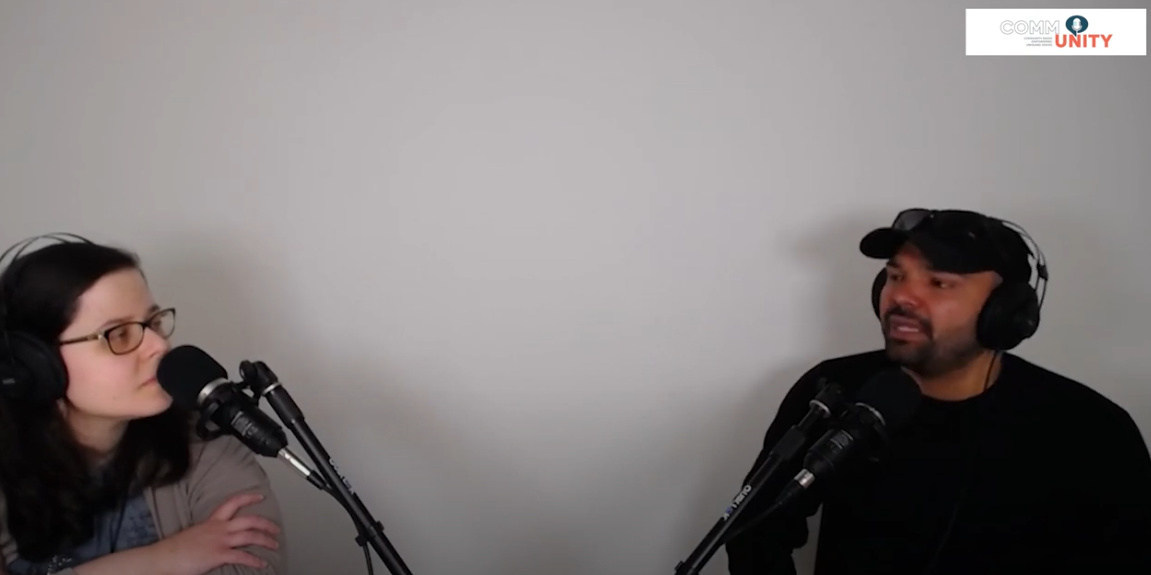
The podcast discusses distorted perceptions of cultural diversity, examining stereotypes about migrants and media narratives, with the experience of Francisco, a Brazilian migrant.
🗣️ Stereotypes about migrants in the media fuel mistrust.
🌍 Cultural diversity is an opportunity, not a problem.
📉 Immigrants contribute to the Italian economy.
🤝 Lack of empathy creates barriers between cultures.
🎙️ Francisco's testimony offers a personal perspective.
📊 Statistics on the integration of migrants in Italy.
🚫 Prejudices against migrants are widespread and unjust.
📰 Media narratives often paint migrants as a problem, increasing social fear. It is essential to change this narrative to foster a more inclusive society.
📈 Immigrants are a pillar of the Italian economy, contributing significantly to the labor market and economic growth, demonstrating their value beyond stereotypes.
💬 Francisco's testimony reveals the reality of migrants: many only seek opportunities and integration, while facing prejudice and discrimination.
🌐 Cultural diversity enriches society; inclusion can lead to greater understanding and social cohesion.
❓ Negative perceptions of immigrants are often based on isolated experiences, contributing to false generalizations.
🔄 Integration requires mutual effort: while migrants must adapt, host societies must also welcome and support this integration.
💔 The discrimination faced by migrants not only harms them, but also impoverishes the overall social fabric, highlighting the importance of empathy and understanding.
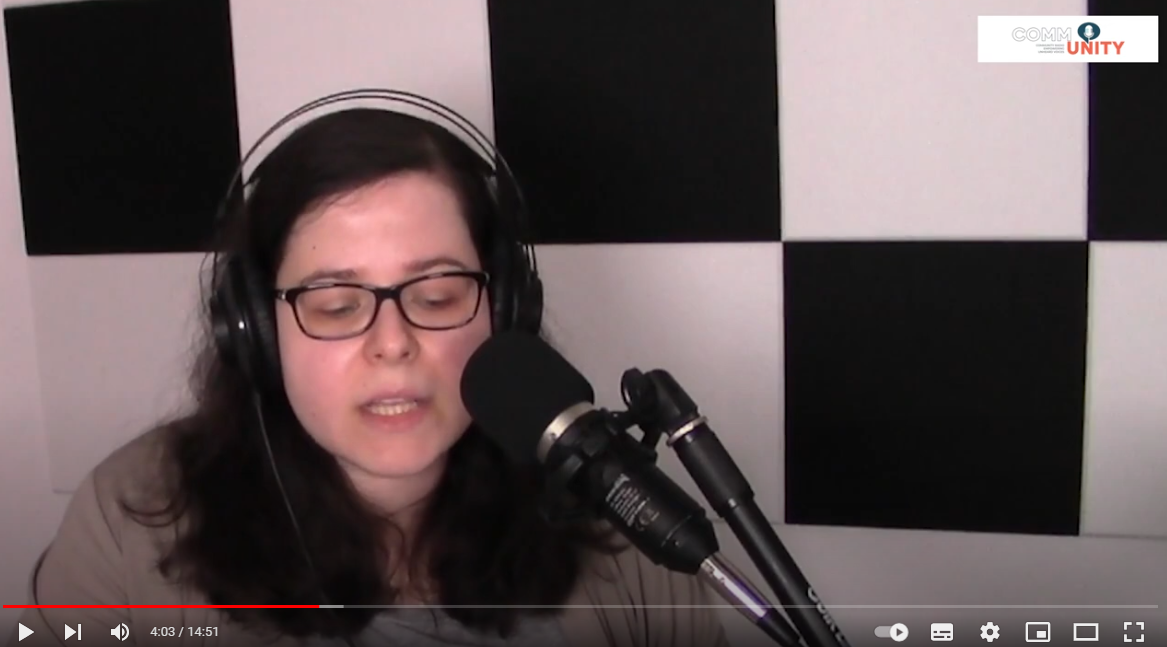
The podcast explores misperceptions about sexual orientation and media stereotypes, highlighting personal experiences and the importance of inclusion.
🎭 Reflection on LGBTQ+ stereotypes and their impact on society.
🎮 Announcing the Pride Run video game, an inclusive initiative.
🏳️🌈 First trans woman elected to Virginia House of Delegates.
🚻 Discussion on gender neutral bathrooms and reactions to them.
📉 Examples of discrimination and violence against the LGBTQ+ community.
📰 Criticism of media language regarding sexual orientation.
💬 Importance of open conversations to break down prejudices.
🌍 The LGBTQ+ community is a microcosm where inclusivity is essential to respecting differences. People are looking for safe places to express their identities.
📣 Journalists have a responsibility to educate and normalize sexual orientation, avoiding headlines that fuel harmful stereotypes.
🧠 It is crucial to discuss mental health in relation to the LGBTQ+ community, as many people feel forced to hide their identity due to fear of rejection.
🤔 The sexualization of bisexual women highlights how perceptions vary, but do not necessarily reflect genuine respect.
🚫 Violence and intolerance towards the LGBTQ+ community also manifest themselves in episodes of bullying and aggression.
😢 Testimonies of embarrassing or discriminatory situations show the need to confront and challenge stereotypes.
✊ Every interaction can help unmask biases and foster a more inclusive environment, highlighting the importance of personal stories.
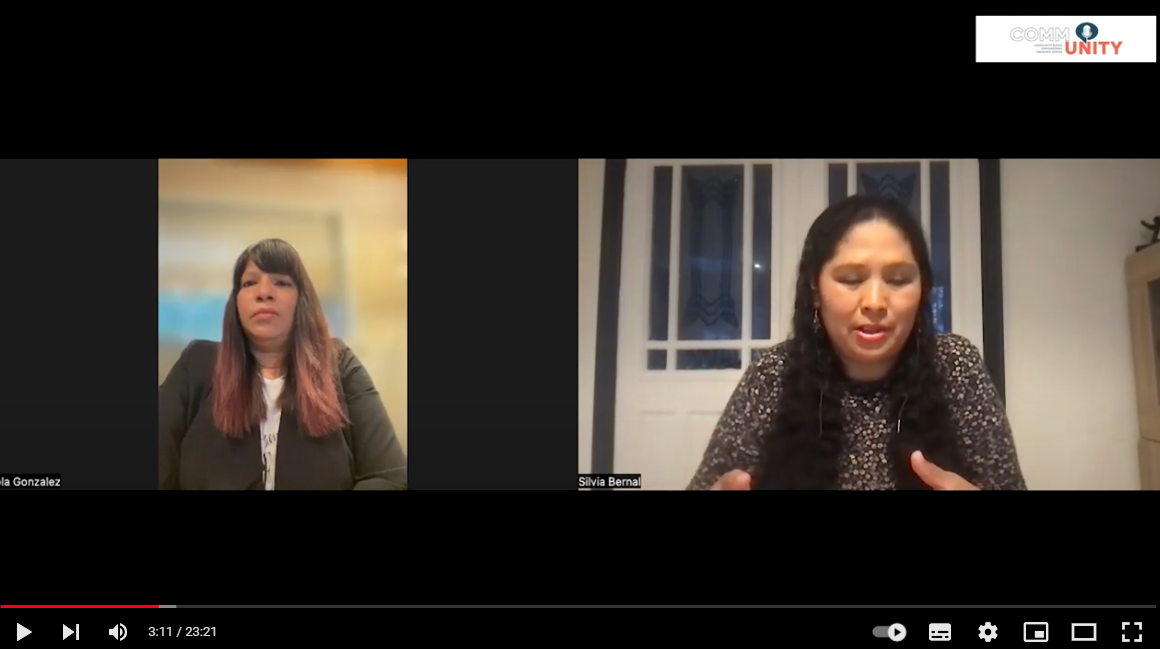
Silvia Bernal shares her journey in community radio with Radio Latina in Dublin, highlighting challenges, the importance of language, and community engagement.
Key Highlights from the podcast....
🎙️ Community Engagement: Radio Latina fosters connection within the Latin American community in Dublin.
🌍 Diversity: The project involves diverse voices from various backgrounds, enriching community storytelling.
🎶 Cultural Expression: Music and language are key components in connecting with the audience.
💪 Overcoming Barriers: Language and immigration status posed challenges in accessing commercial radio.
💰 Funding Issues: Financial support is crucial for sustaining the project and its volunteers.
🤝 Collaboration Opportunities: Businesses and organizations have shown interest in supporting Radio Latina.
🌐 Growing Audience: Viewership is increasing through social media and online platforms.
Key Insights from the podcasts....
🎤 Community radio serves as a vital platform for marginalized voices, allowing individuals to express themselves in their native language and share their stories authentically.
📈 Utilizing social media enhances outreach, enabling Radio Latina to connect with audiences beyond local borders and foster a global community.
🤗 Engaging with music, language, and cultural discussions contributes to the well-being of immigrants, providing a sense of belonging and identity.
🔄 Running a community radio project on a volunteer basis presents challenges, including time constraints and financial instability, affecting content creation and outreach.
🌟With proper funding and resources, Radio Latina could evolve into a more established outlet, providing opportunities for aspiring Latin American broadcasters.
🏢 Local organizations and businesses can play a pivotal role in supporting initiatives like Radio Latina, fostering cultural exchange and collaboration.
🎉 Highlighting events and projects in the Latin community not only preserves culture but also strengthens community ties and engagement.